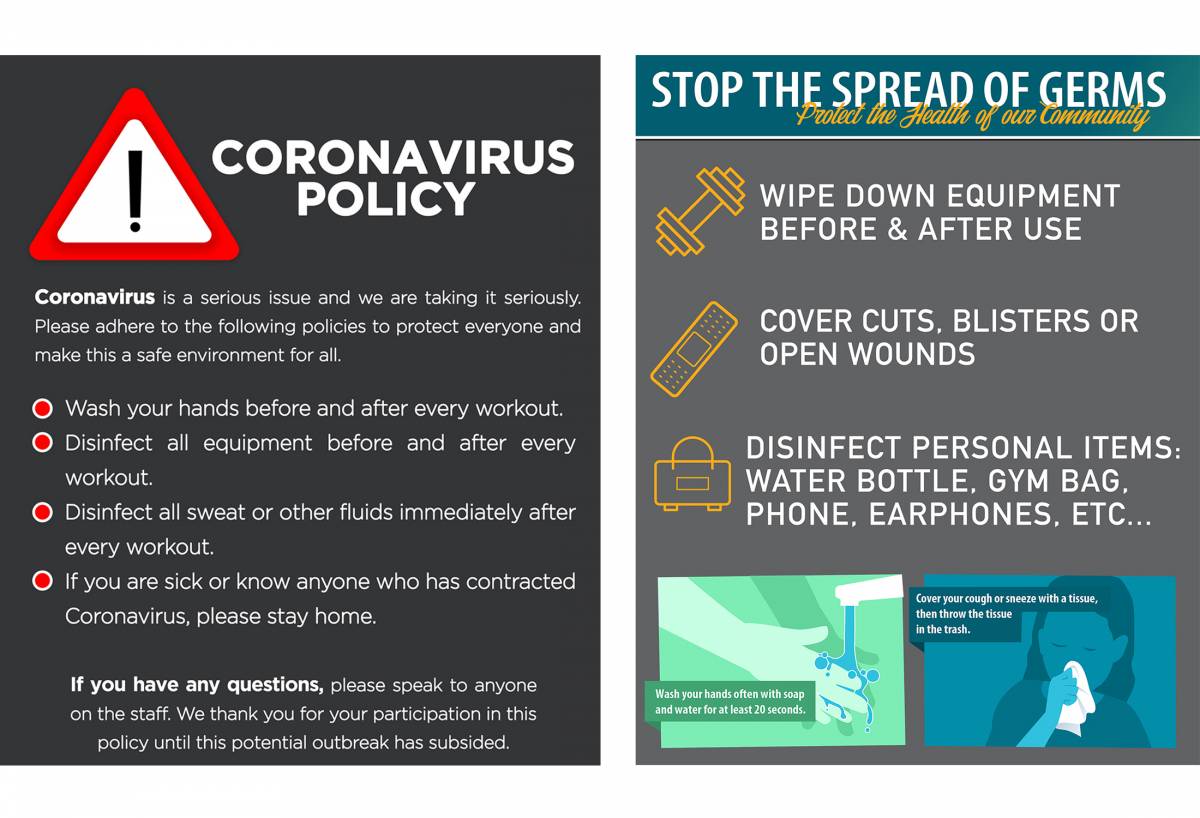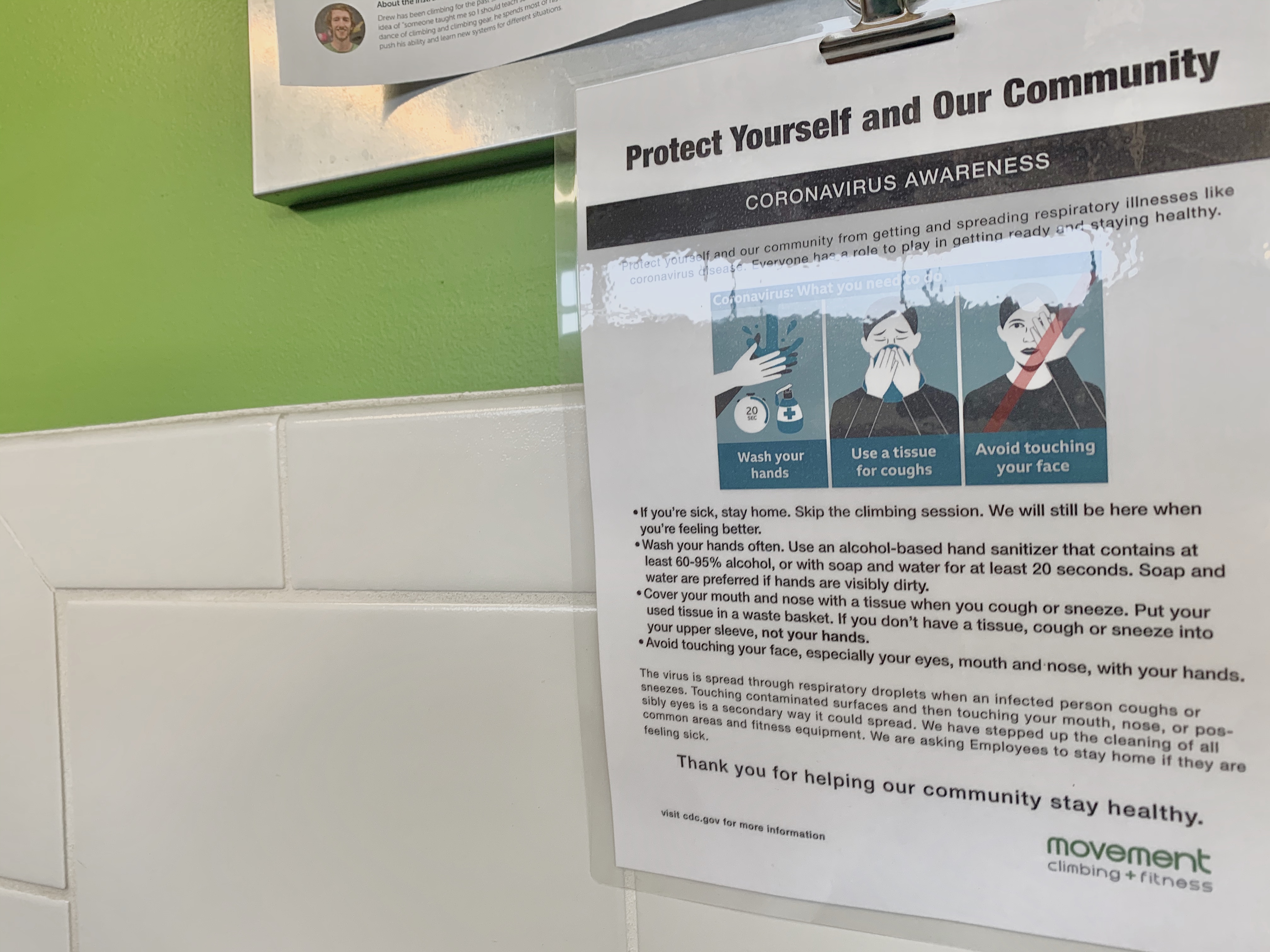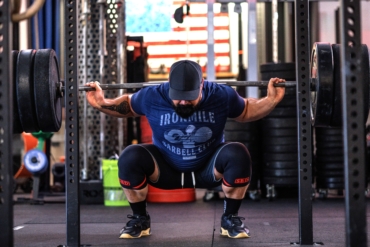It’s impossible to ignore coronavirus in the news and online. But what about when you go for a workout?
Everywhere we look, there are reminders of germs: doorknobs, sink handles, elevator buttons. Countless airlines and businesses have posted safety information regarding the spread of germs. But with the ongoing coronavirus outbreaks and new cases in the U.S., gyms are changing their policies.
The CDC recommends that people “wash their hands often, clean and disinfect frequently touched surfaces daily, avoid touching your eyes and mouth, stay home if you are sick, and avoid contact with sick people.”
Sounds pretty simple until you realize just how many shared (and probably unclean) surfaces you touch at a gym: yoga mats, free weights, bike handlebars, treadmill screens, water fountains, sink knobs, door handles … the list goes on.
“Clean is Kind,” reads a sign with a reminder of cleaning policies at a CorePower Yoga studio. “Rest assured that keeping our community safe and healthy is our top priority,” wrote the One Love yoga studio in an email.
Here in Denver, all types of fitness centers, from yoga studios to CrossFit gyms, have been amping up their cleaning policies. And that’s in a city that doesn’t have a centralized outbreak yet.
Be Mindful, But Not Afraid
Now, companies are littering gyms and studios with disinfectant spray bottles, hand sanitizer jugs, tissues, and wipes. “We are increasing the frequency of deep cleans, and adding more sanitizing materials to high-traffic areas,” wrote Flywheel Sports, a cycling studio in Denver.

It’s important to note the COVID-19 virus isn’t airborne, but it can spread from person to person through “respiratory droplets produced when an infected person coughs or sneezes.” So naturally, that person coughing away on the stationary bike next to you might cause concern.
The virus can’t be transmitted through sweat, but it can live on surfaces. The World Health Organization reports that COVID-19 “may persist on surfaces for a few hours or up to several days,” but the exact timeline is still unclear.
So if you find yourself touching a lot of shared surfaces, make sure you wipe down your equipment and wash your hands frequently.
Prevention Is the Best Medicine
Climbing gym facilities are more unique in that there are more surfaces to touch: like climbing holds, lead ropes, training weights, and more. What’s worse is that these gyms can’t possibly scrub and disinfect every hold and rope in use every day. If you go to a climbing gym regularly, your exposure to COVID-19, and germs in general, is higher.
When’s the last time you saw someone cough then touch a rope, and subsequently 20 other holds in the gym? That means it’s up to climbers to wash our hands and avoid touching our faces as much as possible.
If you happen to be traveling, consider the higher risk of germs in hotel gyms — these fitness areas are usually smaller and used by a much larger pool of people, most of whom are travelers. So consider skipping the hotel gym and going for a run outside instead.
And if worse comes to worst, work out at home. “We’ve had significant sales and usage increases in the last 8 weeks, and even more significant, double-digit increases in the last 4 weeks,” reported Scott Watterson, the CEO of personal fitness equipment brand NordicTrack.
And if you can’t afford a fitness machine or don’t have room for one in your home, there are plenty of other things you can do to stay fit. (One man in China even ran an ultramarathon inside his apartment.)
The CDC advises us to be wary but not to change our daily routines — unless you’re sick of course (i.e., stay home and self-quarantine). If that’s not you, there’s no need to avoid gyms entirely. So continue with your workouts. After all, exercise is good for you.









